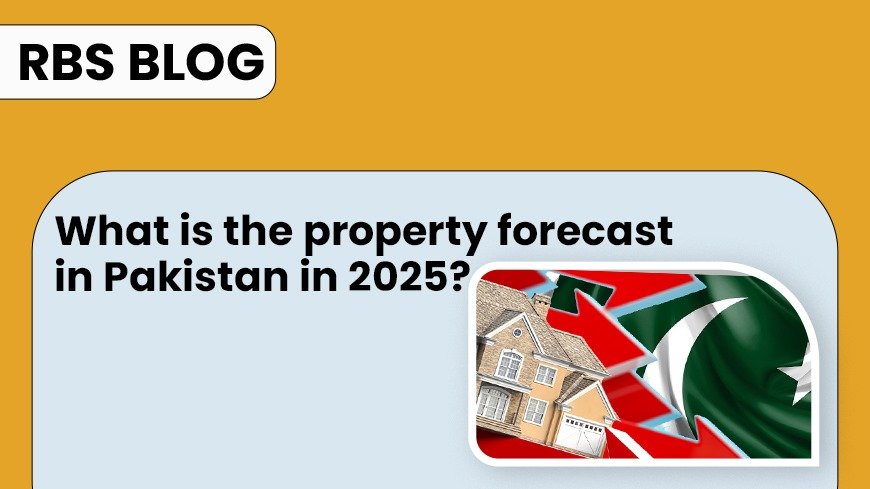
The real estate sector is the cornerstone of Pakistan’s economy. It has been drawing the attention of developers, investors, and homebuyers. With the arrival of 2025, predictions about property forecast and trends have become increasingly relevant. Here, we will give you an insight into investment opportunities, market growth, investment options, and potential challenges. Let’s cut the crease and get into the property forecast in Pakistan in 2025.
Table of Content
- Economic Indications Affecting Real Estate Market
- Predicted Trends in Urban Development
- Investment Hotspots for 2025
- Challenges in the real estate sector
- Expert Insights on Paistan’s Real Estate Market
- Wrap Up
Economic Indications Affecting Real Estate Market
The following economic factors will significantly influence the real estate market in Pakistan in 2025;
- GDP Growth: Moderate economic growth is projected, increasing purchasing power.
- Inflation Rates: The government should control soaring inflation to address issues concerning property prices.
- CPEC Developments: The China-Pakistan Economic Corridor (CPEC) is working on ongoing infrastructure development projects that improve connectivity and property value around developed projects.
- Foreign Direct Investment (FDI): Government policies designed to entice FDI may increase real estate investments.
Predicted Trends in Urban Development
- Rise of Smart Cities: Capital Smart City and Lahore Smart City are examples of new trends in city construction. More smart city projects, focusing on at least seven sustainable aspects and technology issues, are expected to be launched by 2025.
- Vertical Development: Due to the reduced availability of land in most cities, vertical construction is going to increase in Karachi, Lahore, and Islamabad.
- Affordable Housing Projects: The need for affordable housing will help develop middle-class housing schemes, as the middle class will demand cheap houses to reside in.
Investment Hotspots for 2025
Some ERP projects that may be expected to experience demand growth include DHA Islamabad, Bahria Town, and Capital Smart City. These cities promise good revenues for investors because they are located close to new business territories and infrastructural facilities.
The Lahore Smart City and Ravi Urban Development Project will define the region. Moreover, the higher population and economic activities will result in higher property values.
Being in the limelight of CPEC, Gwadar has a considerable investment pull for investors. There are expectations in industrial zones and port developments to boost economic growth.
The country’s economic hub shall continue to be popular because of continuous expansion and construction projects of structures.
Challenges in the Real Estate Sector
- Regulatory Issues: To efficiently deliver the rights of buyers and investors, the laws should be more precise, and the governance should act wisely.
- Economic Stability: Purchasing power can be affected by changes in currency and inflation.
- Lack of Transparency: Transactions must be transparent to incorporate trust into the market.
- Infrastructure Deficits: As has been observed, market development is a function of infrastructure development; therefore, infrastructure development delays will slow down the market.
Also Read: Home Loan Financing Advice for First Time Buyers
Expert Insights on Pakistan’s Property Market
Experts believe 2025 will be a turning point for Pakistan’s real estate market. Improved infrastructure and enhanced connectivity backed by government support will drive growth. Nonetheless, investors are encouraged to conduct research and invest, especially in areas with well-defined development strategies and regulatory policies.
Wrap Up
By evaluating the components and analyzing elements of the property market and the indications of Pakistan’s economy, it is still possible to predict cautious optimism in the conditions of the property market from a perspective within Pakistan of 2025. Furthermore, RTA has excellent opportunities in all these areas, especially in urban cities and infrastructure-backed countries.
Still, some challenges need serious solutions, such as the economic stability of a nation and the transparency of a country’s regulatory environment. For the investor or the home buyer, keeping the follow-ups is mandatory to ensure the full benefit. Stay connected with RBS for more property updates and insights.







